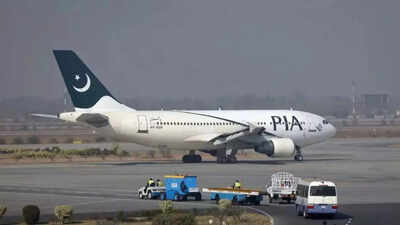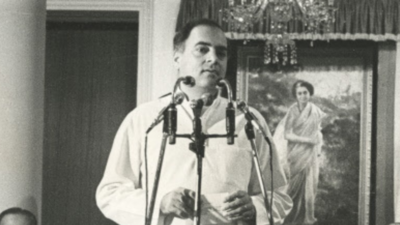When Chinedu (not his real name) walked into the Primary Health Centre (PHC) in Afikpo, a community in Ebonyi State, holding his one-year-old son, the nurses looked up in surprise. "Where is your wife?" one of them asked. "She's at the shop today," he replied.
"I said let me bring my boy for his injection." There was a pause. Then the nurses nodded, impressed.

It wasn't common to see fathers at the clinic. In many communities across Nigeria, childhood vaccination is seen as a mother's responsibility . She tracks the dates, carries the immunisation card, shows up and waits in line to make sure her child gets a dose.
Fathers, on the other hand, often remain in the background, offering financial support but rarely present in the process. This gap isn't necessarily due to neglect. It's tradition.
It's culture. It's habit. But increasingly, it's a missed opportunity .
When fathers are not involved, children are more likely to miss key vaccination milestones. When they are involved, the outcomes improve : fewer missed doses, more informed decisions, and stronger support for child health at home. Community listening on Measles, Mumps, and Rubella vaccine awareness and doses In a recent community perception survey conducted in Borno, Cross River, Ebonyi, Kano, Lagos, and Niger states, we received 1,036 responses from both men and women in nearly equal numbers.
Interestingly, about 68% of male respondents said they had heard of the Measles, Mumps, and Rubella (MMR) vaccine -- which is considered a relatively good awareness level. However, when we dug deeper into the details, only 19% of men surveyed knew that the first dose should be given at 9 months, the stipulated age for the vaccine according to Nigeria's immunisation schedule . While about 61% correctly said children needed two doses, it still leaves many men unaware of the full schedule.
On the other hand, 28% of women got the timing right, and 56% knew about the two-dose requirement which is slightly better, but still far from ideal. So while general awareness seems promising, the gaps in specific knowledge, like when and how many times the vaccine should be given, remain significant. These knowledge gaps matter because they reflect why Nigeria continues to struggle with vaccine-preventable disease outbreaks.
The consequences are serious Nigeria is among the ten countries with the highest number of zero-dose children , with over 4.3 million children under five not receiving full immunisation. As of 2023, only 38% of children received the second dose of the measles-containing vaccine , despite 60% coverage for the first.
That gap contributed to recurring outbreaks, and in 2024, over 72% of confirmed measles cases were reported in children who hadn't received a single dose. So, we ask: What if men were more involved? Can shared responsibility improve second-dose follow-ups and close the zero-dose gap? In Indonesia , a powerful example emerged when a father, after learning about the importance of immunisation, took it upon himself to ensure his children completed their vaccinations. This shift in mindset didn't just protect his children, it reinforced how crucial paternal involvement can be.
Fathers want to help, they just don't feel invited Public health messaging often targets mothers, women or female caregivers. Campaign images, voice notes, and radio jingles rarely speak to men directly. Immunisation initiatives and innovations are only planned with mothers in mind.
So, where do fathers fit in? Health is not a gendered duty. Raising a child is a shared journey, and immunisation -- one of the most powerful tools that protects children -- is far too important to leave to just one parent. A few ways we can begin shifting the narrative as Nigeria plans to roll out Measles and Rubella vaccine this year include: Target men intentionally : Host father-friendly health days at clinics.
Design messaging that says, "Mothers and Fathers, protect your child with two doses of MMR." Use images of fathers holding their babies. Put male voices in the message : Feature men in radio jingles, TV ads, and community storytelling events.
Let other men hear that showing up is not just okay, but admirable. Host conversations where men are : Engage men in spaces they frequent -- mechanic shops, viewing centres, places of worship. Use these gatherings to discuss vaccines, schedules, and their role as protectors.
Close Sign up for free AllAfrica Newsletters Get the latest in African news delivered straight to your inbox Top Headlines Health Nigeria Human Rights Submit By submitting above, you agree to our privacy policy . Success! Almost finished..
. We need to confirm your email address. To complete the process, please follow the instructions in the email we just sent you.
Error! Error! There was a problem processing your submission. Please try again later. The ripple effect of one man showing up When Chinedu returned to the clinic for the second MMR dose, this time with his wife, he noticed two other fathers waiting outside .
"I told my neighbours. One of them missed the first dose. I said, 'make we go together,"' Chinedu explained.
That's how change begins. It's time to retire the idea that protecting a child's health is mainly a woman's job. When fathers show up at clinics, in conversations, and in decisions, the entire family benefits.
So, as the Big Catch-Up ; Supplemental immunisation Activity (SIA) campaign; and the Outbreak Response (OBR) campaign is planned, let's remember that fathers can play a vital role too. Read the original article on Nigeria Health Watch ..
Food

Nigeria: Not Just a Woman's Job - Why Men Matter in Nigeria's Fight to Reduce Zero-Dose Children

[Nigeria Health Watch] When Chinedu (not his real name) walked into the Primary Health Centre (PHC) in Afikpo, a community in Ebonyi State, holding his one-year-old son, the nurses looked up in surprise. "Where is your wife?" one of them asked.














